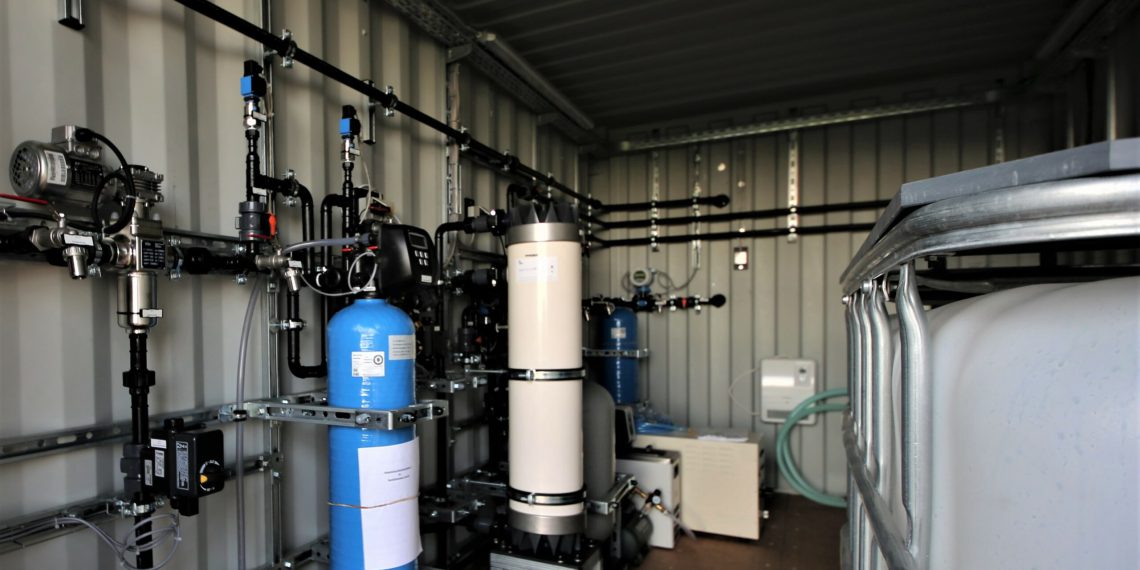Around three percent of the world’s available water is drinkable freshwater. The increased occurrence of extreme weather events such as heat and droughts in recent years makes it clear how valuable this resource is in this country, too. At the same time, large quantities of water are needed to produce food. Innovative physical processes could help reduce fresh water requirements in food processing through water treatment and water recycling. By eliminating particles and germs, this also reduces the environmental impact of wastewater. Following successful laboratory tests, the Physics for food research project is starting a practical test in the Anklam factory.
Environmentally harmful substances and germs are to be removed from the process water used in sugar production using a novel combination of various physical processes such as mechanical filters, activated carbon, ultrasound, ozonation, UV treatment and pulsed electric fields (PEF). In addition, a special plasma technology will be used to render pesticides and pharmaceutical residues harmless by means of a dielectric-obstructed discharge (DBE).
The various modules will be tested for effectiveness on different wastewaters during the course of the project. The mobile demonstrator can purify up to 2,500 liters of wastewater per hour. The plant will make it possible to test the effect of the various processes used on the respective water composition, both individually and in combination, in preparation for the optimal design of large-scale applications for different areas of use.
Environmentally friendly water treatment processes thanks to innovative technologies
The project’s scientific director Prof. Dr. Jürgen Kolb from the Leibniz Institute for Plasma Science and Technology (INP) explains: “The treatment of water in food production and agriculture offers enormous ecological and economic potential. We are looking for new ways to either reuse wastewater directly in the production process or to return it cleanly to nature. By combining classical water treatment processes with innovative technologies such as plasma, ultrasound and pulsed electric fields, we can very efficiently remove germs, agrochemicals and pharmaceuticals from water, keeping them out of groundwater or surface waters. We see potential applications not only in food production but also in plant cultivation, animal husbandry or in hospital environments.”
The Cosun Beet Company, as operator of the Anklam sugar factory, is involved as a practical partner. The plant in Mecklenburg-Western Pomerania currently processes around 1.8 million tons of sugar beet annually. In addition to granulated sugar, the plant also produces animal feed, bioethanol and biomethane from the sugar beets, which is fed into the natural gas grid as a renewable energy source.
“Our goal is to achieve a complete circular economy when processing sugar beet. We want to make optimum and sustainable use of all components. Water treatment is central to our sustainability strategy in this regard.”
- Miriam Woller-Pfeifer, plant engineer
In addition to Cosun Beet Company GmbH & Co. KG and the Leibniz Institute for Plasma Research and Technology e.V. (INP), Harbauer GmbH and Power Recycling Energyservice GmbH are involved as further project partners. The project, which is funded by the German Federal Ministry of Education and Research, will run until the end of 2022.

















